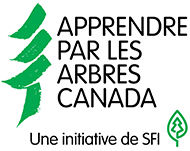
Loretto Ladies Colleges


Loretto Maryholme Spirituality Centre
is a naturalized property of 12+ acres on the shore of Lake Simcoe in the town of Keswick Ontario. It is owned and operated by the Loretto Ladies Colleges an educational non profit. The site offers a variety of landscapes including waterfront, savannah, and a small woodland.
Loretto Maryholme offers progams and opportunities to others who are aligned with our mission:
“to encourage individuals and groups to explore and restore the energies needed for personal, communal, and world transformation.”
Most who come, come for a retreat whether for spirituality or business planning purposes. We can accomodate 20 for overnight and approximately 40 for meetings. Catering is negotiable.
Our clients include small non profit groups, public health nurses, many different church groups and individuals.
Buildings include a main house, a smaller house and 3 cabins and a workyard.
There is a special environmental focus at Loretto Maryholme. Everything possible within our means is done to work with the land and water ecosystems. We pay attention to what is underground as well as what is visible. We highlight special features as a way to educate our guests via special walks and informative signage. Our entire property, not only the woodland is now home to approximately 100 native trees and shrubs, all carefully sited for the future.
Histoire de l'entreprise
Company History
After the War of 1812, York (Toronto) was considered vulnerable to further attack. New lands were sought by the Government. Because Roches Point, then called Keswick, “was deemed to be a safe haven” it was proposed as the capital designate for Upper Canada. An historical sign outside the gate tells the story and if you travel down Bouchier St. you will still find a government dock.
In 1878 Sir James Edgar, MP for Ontario West Riding, and his wife Lady Matilda Edgar obtained the property. They transferred their house in Lefroy to the new estate, but after some time moved it across the road. They constructed a new house, but it burnt to the ground so they were forced to rebuild what is now the present structure.
They called it “The Bungalow” until they added a second storey in 1885 and re- named it “The Pines”. In 1889 Sir James died but the home remained in the family until the death of Lady Matilda in 1910.
In 1912 “The Pines” was sold to the George H. Fensom family. (For a short time Mr. Fensom was a partner in the Otis-Fensom Elevator Company.) They added the “back suite” bedrooms to the main house and later built the adjacent servants’ lodge, the log cabin, and the small cabin/sheds.
In 1946 the Canadian Loretto Sisters bought the property with most of the contents as a holiday retreat house and re-named it “Maryholme”.
In September 2001 Loretto Maryholme opened as a Spirituality Centre where “individuals and groups could explore and restore the energies needed for their personal and communal transformation”.
In 2005, Loretto Maryholme engaged a forester to develop a forest management plan as part of our stewardship of this property. In the subsequent years, many of those recommendations have been undertaken. Much of the work has involved the removal of invasive species in the woods.
On July 16, 2006 the Loretto Sisters marked the 60th anniversary of their property ownership and as a sign of their ongoing commitment to this area they planted a ginkgo tree which can live to a thousand years …
In 2018, the environment managers invested in an organic course to enhance the procedures already underway: biological controls, mulching, irrigation control, and native plantings suitable for the conditions.
Données sur l'entreprise
Company Facts
Our forest is undergoing reconstruction with the aid of a management plan by a forester who will help us to have a healthy diversified woodlot when, with all the help we can get, we eliminate much of the invasive undergrowth and shrubs so new trees will be able to thrive. Gradually we are adding native plants to the woods. Trees are beginning to sport name tags so we can know them in all seasons. Getting to know the land also means finding a way to share it with many creatures even skunks, groundhogs, beavers, bats and the beautiful foxes. Our waterfront has always been the wildest in our area. It is the one area of natural forest we have.
For many years a wilderness of invasive weeds prevented passage through the plantation stands of Scots pine and White pine.
• The existing trees have been thinned to increase the light and encourage seedlings of maple, oak and alder to develop into large trees.
• About 400 additional pines have been planted to replace the Scots pines which are nearing their life span.
• Native trees that are more unusual but suitable for our area are sought and planted to further their spread
and our biodiversity. Some examples are Kentucky coffee tree, sycamore, hickory.
• The invasive weeds are being replaced with native wildflowers, ferns and hostas.
• Middle story native shrubs of elderberry and choke cherry are filling in beside the many lilacs and honeysuckle already in place.
• Paths are lined with cut trees and mulch products from the woods themselves.
• Some log piles and dead trees are left as animal habitat.
The property management is supplied by one sister and one manager with the assistance of 1 or 2 summer students and a small group of volunteers.
Special assistance has also come from environmental groups such as the York Stewardship Rangers, and Ontario Streams.



